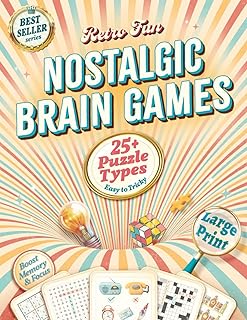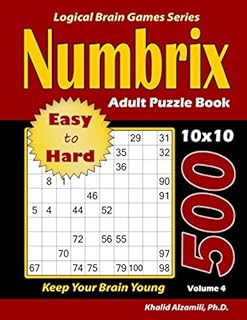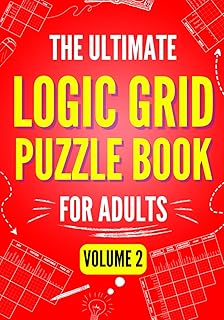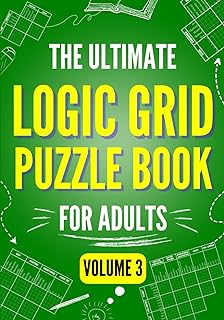Unlock Your Mind: Mind‑Bending IQ Puzzle Challenges to Master
Looking for a fun, research‑backed way to sharpen your thinking? IQ puzzles are proven to enhance problem‑solving speed, working memory, and fluid intelligence. Below you’ll find a step‑by‑step guide to the most effective puzzle types, proven strategies, and a practical daily routine that fits any schedule.
Why IQ Puzzles Matter
- Neuroplasticity boost: Challenging puzzles trigger the formation of new neural pathways (source: Frontiers in Human Neuroscience, 2021).
- Transferable skills: Improved logical reasoning translates to better decision‑making at work and school.
- Low cost, high return: Most puzzles require only a pen, paper, or a free app – no pricey equipment.
Core Categories of Mind‑Bending IQ Puzzles
1. Logic Puzzles
These test deduction and pattern‑recognition. Classic examples include Sudoku, nonograms, and “knights‑and‑knaves” riddles.
2. Spatial Reasoning Puzzles
Spatial puzzles assess mental rotation and visual‑spatial manipulation. Think Rubik’s Cube, 3‑D tangrams, and “fold‑and‑cut” challenges.
3. Numerical Puzzles
From KenKen to number‑series riddles, these sharpen arithmetic fluency and quantitative logic.
4. Verbal Puzzles
Word ladders, cryptic crosswords, and “missing‑letter” problems develop linguistic flexibility and working memory.
How to Approach Each Puzzle Type
Logic Puzzles – The “Elimination” Method
- Identify givens and write them down clearly.
- Mark impossible options (e.g., X cannot be in row 3).
- Search for “single‑possibility” cells – fill them immediately.
- Iterate: each new placement creates fresh eliminations.
Spatial Puzzles – The “Chunk‑Rotate” Technique
- Break the shape into smaller, familiar components (triangles, squares).
- Mentally rotate each chunk before re‑assembling.
- Use a physical model (paper cut‑outs) for the first 5 minutes to train visual memory.
Numerical Puzzles – The “Pattern‑First” Rule
- Look for arithmetic progressions, geometric sequences, or alternating operations.
- Write down the first three terms; hypothesize a rule; test on the fourth.
- If the rule fails, consider mixed operations (e.g., +2, ×3, –1).
Verbal Puzzles – The “Word‑Family” Strategy
- Identify root words, prefixes, and suffixes.
- Generate all possible variations before checking the clue.
- Use a quick “letter‑frequency” scan: common letters (E, A, R) often occupy central positions.
Daily Brain‑Workout Routine (15‑Minute Blueprint)
- Warm‑up (2 min): Solve a 4‑x‑4 Sudoku or a simple word scramble.
- Core challenge (8 min): Pick one puzzle type per day (rotate logic → spatial → numeric → verbal). Use a timed app to record speed.
- Reflection (3 min): Write down:
- What strategy worked?
- Where you hesitated?
- One improvement for tomorrow.
- Cool‑down (2 min): Review a previous puzzle you solved incorrectly; re‑solve it without notes.
Tracking Progress – Simple Metrics That Matter
| Metric | How to Measure | Target (30 days) |
|---|---|---|
| Average Completion Time | Sum of timed runs ÷ number of runs | Decrease by 20 % |
| Accuracy Rate | Correct solutions ÷ total attempts | ≥ 95 % |
| Strategy Recall | Self‑rated 1‑5 after each session | Average ≥ 4 |
Common Mistakes & How to Fix Them
- Rushing the first glance: Spend 30 seconds scanning all givens before writing anything.
- Skipping the “why”: After solving, ask “Why did this method work?” Write a one‑sentence explanation.
- Sticking to one puzzle type: Rotate categories weekly to keep all cognitive domains active.
- Ignoring mistakes: Keep a “failure log” and review it weekly.
Bonus: Free Resources to Start Solving Today
- Brainzilla Logic Puzzles – printable PDFs, no registration.
- Sudoku.com – adaptive difficulty levels.
- MentalUP – free daily brain‑training app (covers all four categories).
- Discovery Education Puzzle Maker – generate custom word/number puzzles.
Conclusion: Turn Puzzles into a Superpower
Smart, consistent practice—just 15 minutes a day—can measurably boost fluid intelligence, memory, and problem‑solving speed. By rotating logic, spatial, numeric, and verbal challenges, applying the proven strategies above, and tracking your metrics, you’ll transform mind‑bending IQ puzzles from a pastime into a cognitive super‑tool. Start today, record your first attempt, and watch your mental agility soar.
Related Amazon Products

Retro Fun Nostalgic Brain Games for Seniors & Adults: A Large Print Puzzle Book with 60+ Memory Boosters, Word Games & Classic Challenges to Relive the 50s–90s

Numbrix Adult Puzzle Book: 500 Easy to Hard Puzzles (10x10) : Keep Your Brain Young (Logical Brain Games Series)

The Ultimate Logic Grid Puzzle Book for Adults, Volume 2: Another 100 Fun and Challenging Puzzles (Logic Puzzles - The Ultimate Collection)
As an Amazon Associate I earn from qualifying purchases.







